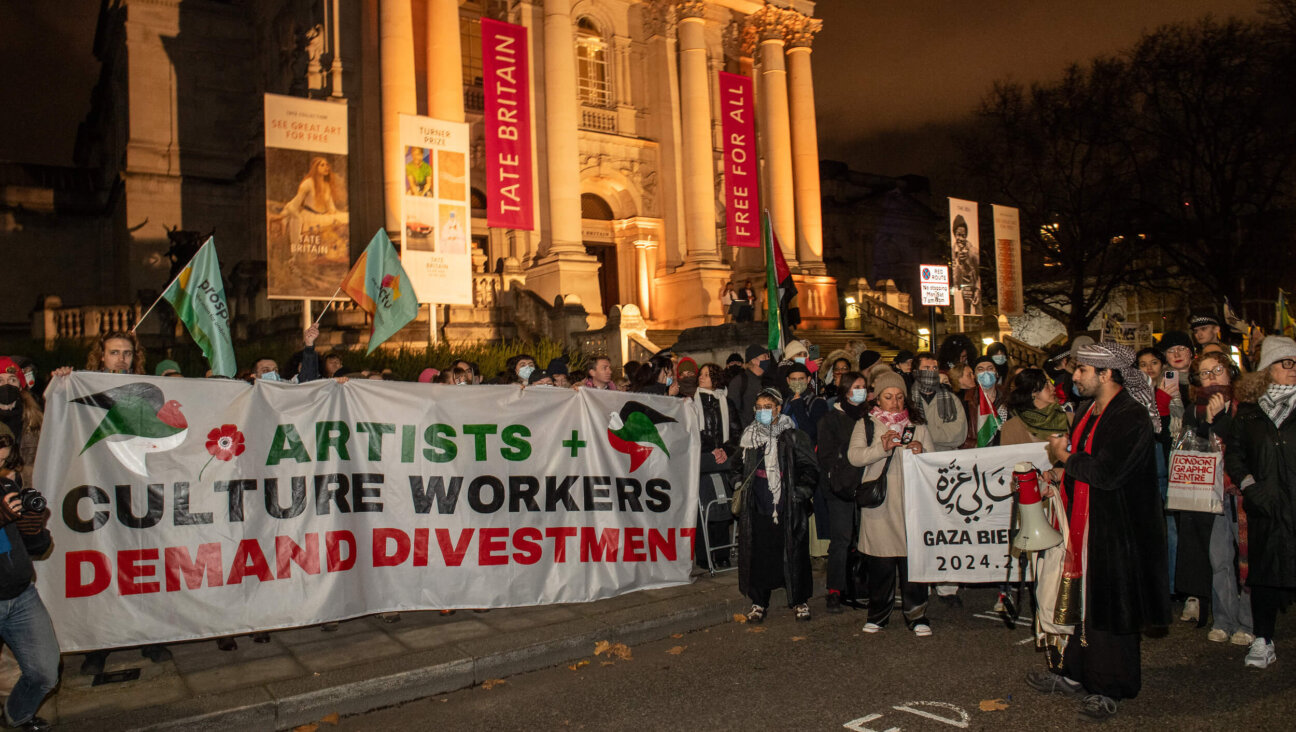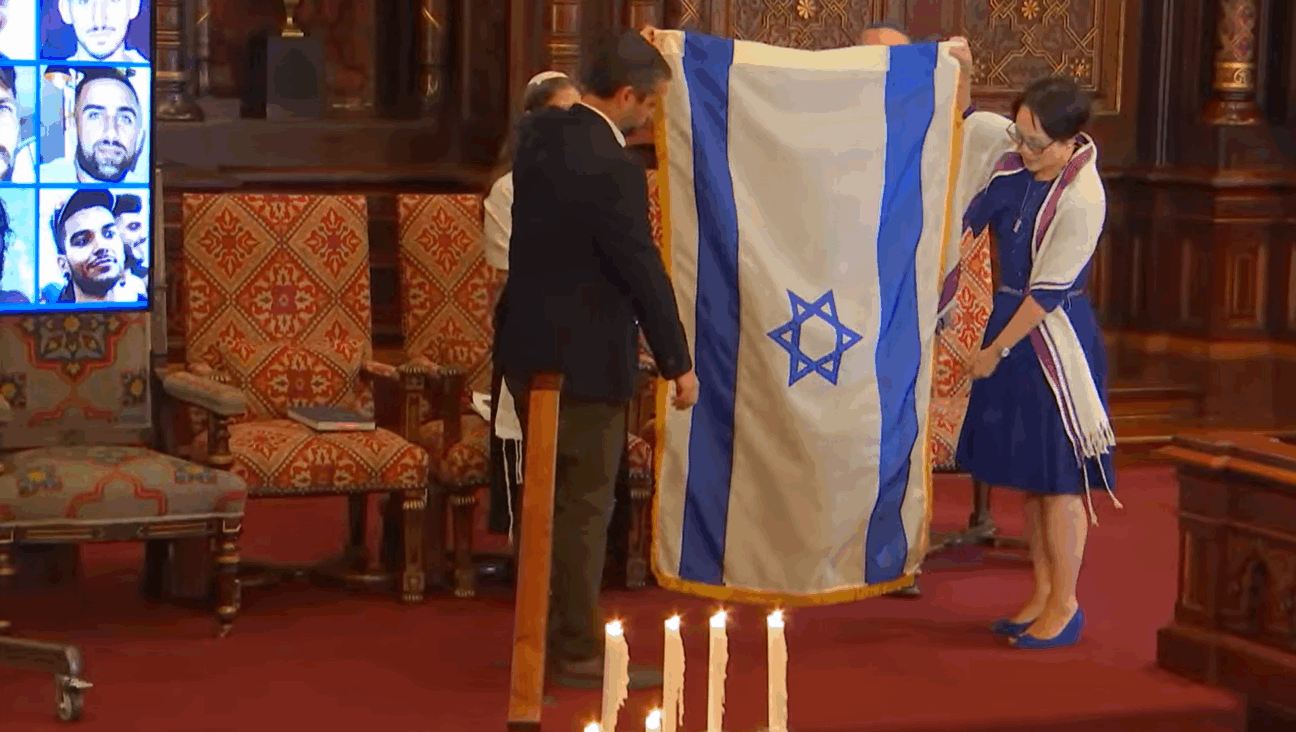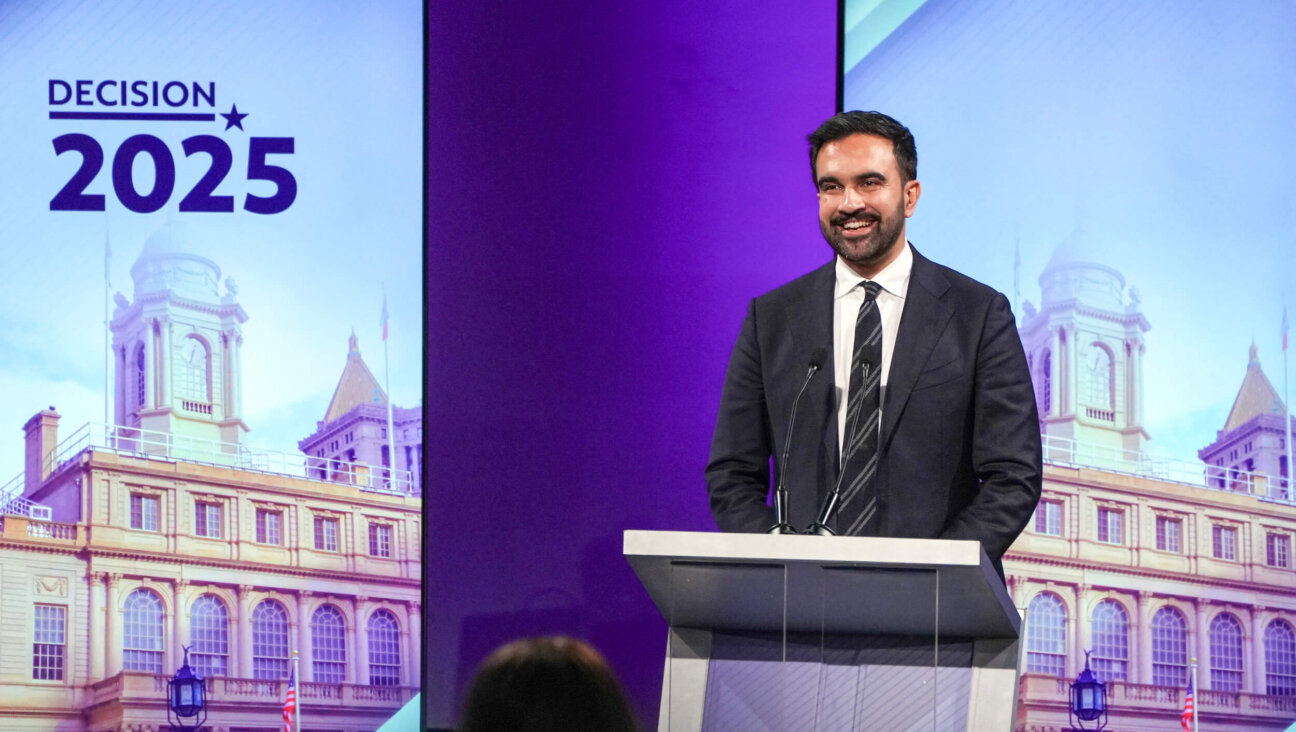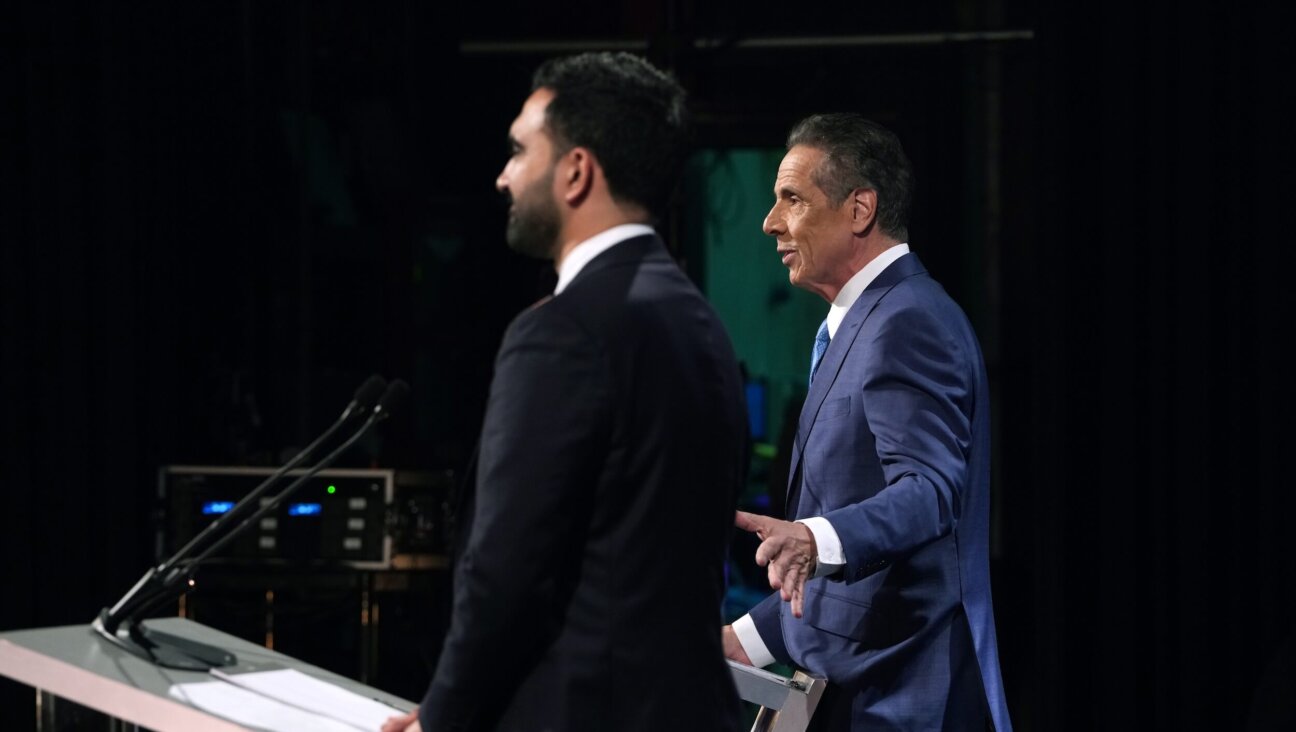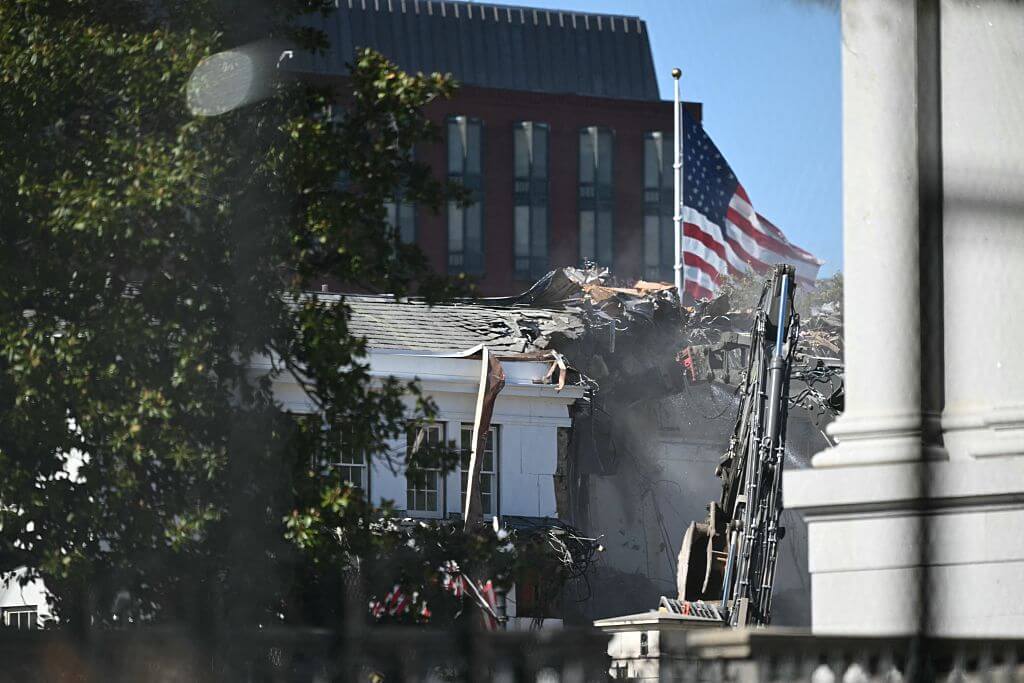Three Generations Of Barnard Alumnae Respond To Student BDS Referendum

Left to Right: Gail Butler Bendheim, Avital Jacobson, and Yonina Bendheim Jacobson. Image by Courtesy Avital Jacobson

Barnard College in New York, New York.
On the eve of Israel’s Independence Day, students at Barnard College passed a referendum, written by students from Jewish Voice for Peace and Students for Justice in Palestine, calling upon the university administration to divest from eight companies that do business in Israel. However, on April 22, Barnard president Sian Leah Beilock stated that “Barnard will not take action in response to this referendum.” Below, three generations of Barnard alumnae from the same family share their thoughts on the move, and how it might impact Barnard students:

Left to Right: Gail Butler Bendheim, Avital Jacobson, and Yonina Bendheim Jacobson. Image by Courtesy Avital Jacobson
Gail Butler Benheim, Class of 1969, majored in English Literature.
Yonina Bendheim Jacobson, Class of 1993, majored in Art History.
Avital Jacobson, Class of 2017, majored in Psychology.
Let’s start off on a positive note: what was (/is) Jewish life at Barnard like during your time on campus?
GBB: When I attended Barnard, Jewish life was just beginning to articulate itself. The Seixas Menorah Society, housed in Earl Hall, served the needs of Jewish students at Columbia and Barnard, and there was a Jewish chaplain, but he was not a strong presence for my Orthodox cohort at Barnard. It did offer a program of “Seudot Shabbat” (Shabbat meals) for students in need of Shabbat meals, but staying on campus for Shabbat was not the mode of choice for most dorm students like myself, and it certainly was not looked upon as the social highlight of the week. As a Modern Orthodox student, I was involved in our Yavneh chapter — I remember intense discussions of matters of the day — but this felt more like involvement in a national organization than an expression of Barnard’s culture.
It took ongoing work to negotiate around missed classes and exams on Jewish holidays (I think that the status of Shavuot as a legitimate holiday was questioned), and there was a mandatory food plan for dorm students. So my freshman year at Barnard was fueled by coffee yogurt and canned grapefruit sections. By my senior year, we had an “almost-kosher” suite in one of the apartments owned by the school.
YBJ: Jewish Life on campus was part of everyday life for me. We had a kosher section of the cafeteria, there was a community meal if you wanted it on Friday night and Shabbat. There were daily tefilot (prayers) in Earl Hall — there was no Hillel building yet. Our chaplain was not particularly involved, but was there in the background if someone would seek him out. There were those who were very involved in Hillel and Yavneh. I was not, but I relied on the strength of the Barnard Jewish community and it was a core reason why I chose to go to the school.
AJ: Jewish life on campus was an integral part of my experience at Barnard. For me, the two concepts are deeply intertwined. Over the course of my four years at Barnard, Jewish life on campus was thriving. We had a kosher section of the cafeteria in Hewitt, access to prepackaged kosher meals in the Diana center, and most importantly the Kraft center, which provided daily and holiday prayer services, Jewish and religious learning opportunities, and a place to meet and hang out with my friends. As a Jew, specifically as a Religious Jew, I was able to find continued strength and opportunities within the Barnard community, and was able to develop not only as a person, but as a religious Jew within the confines of Barnard.
What, if any, were your experiences with anti-Semitism at Barnard?
GBB: I experienced a general sense of neutrality towards Jews. I felt comfortable in my Jewishness. Within the Jewish student body, there was a feeling of intense pride in Israel in the time around the SIx Day War. However, there were some courses at Columbia — Edward Said’s, for example — where one could sense a different narrative emerging. Perhaps there were other places, but I was not aware of them.
YBJ: I had no direct experiences of anti-Semitism at Barnard.
AJ: While I had many indirect experiences of anti-Semitism at Barnard, there were no direct anti-Semitic actions geared toward me. Though I experienced many anti-Israel events, which to me were anti-Semitic as well.
Did you find the campus to be generally friendly towards Jews? What about towards Israel?
YBJ: I too experienced a general sense of neutrality towards Jews. None of my male friends were wary of wearing kippot, Shabbat was not a big deal in the dorms, people were generally tolerant of differences.
AJ: In general I felt the campus to be friendly toward Jews, although there was an apparent lack of awareness and tolerance about Sabbath observance and practices—specifically in the 600 dorms.
With regard to Israel, the student population was generally not friendly. There was ample opportunity for pro-Israel groups to voice their opinions and have events, however other groups such as Students for Justice of Palestine and Jewish Voice for Peace were much louder. There was one day where overnight there was a green flag, championed by the student group SJP with the outline of “Palestine” hanging in front of Barnard hall. While Barnard claimed it was not the position of the institution, the fact that it hung in front of its main building sent a different message. After outrage from pro-Israel groups, such as Aryeh, the banner was taken down. The fact is, it should not have been put up in the first place.
This week, Barnard’s student government passed legislation calling on the board of trustees to boycott and divest from eight companies that work with and in Israel. Do you think this will actually happen?
Editor’s Note: On April 22, Barnard president Sian Leah Beilock wrote that “Barnard will not take action in response to this referendum.”
GBB: I hope and believe that divestment will not happen. I have faith that the Board of Trustees will give much more nuanced thought to this question, and that they will consider this issue in a broader way than identity politics and intersectionality would dictate.
YBJ: I truly hope that it does not. I fear, however, that the universities will fall prey to the, in my mind, inane intersectionality argument that has taken over institutions. Somehow, a climate has emerged that has encouraged the repackaging and reassignment of all things Zionist and Israel to the racist box and to not allow feminism and overall liberal values, which I very much ascribe to, to be divorced from anti-Israel sentiment. I am fearful that this insidious and backward reasoning will have an effect on decision making. Additionally, there is an overall climate of lack of nuance. No one is interested in finding out the details, optics are everything. So I am hopeful that reasoned people will look at this, and look at the entire situation and make the right decision, but I am by no means certain that they will.
AJ: I really hope that Barnard as an institution can see that this is not a one-sided issue, but that it is extremely nuanced. I have faith that Barnard will not be the FIRST College to implement BDS on an institutional level,that is not a precedent I believe they want to set. Unfortunately, optics are everything, and in this day and age people aren’t particularly interested in knowing the facts — only in what sounds good. So while I’m hopeful that the Board of Trustees will come to the right decision and shoot this legislation down, but I’m not 100% sure, and that scares me.
Do you think that the BDS vote will impact Jewish students?
GBB: I am very worried that the anti-Israel drift of student feeling will create discomfort for Jewish students, and that feels very threatening to me. I cherish the wonderful education that Barnard gave me, and I would want that to continue to be a welcoming experience for Jewish students who are supportive of Israel.
YBJ: Most certainly. I currently have a daughter in the school, and my older daughter is a graduate. We have another daughter coming down the pike. With a climate like this, I would be very wary of having her apply. Additionally, my daughter has described “Israel apartheid week” to me where many of the Jews just keep their heads down for fear of confrontation or worse. To my mind, anti-Zionism is anti-Semitism. This is in no way the type of school that I am desirous of having my children attend, and based on the recent conversations I have had with fellow alumnae who also have college-aged daughters, I know that I am not alone.
AJ: Absolutely, without question. My sister is currently enrolled in the school, and with this news coming out, my parents entertained the idea of pulling her out. Not only would this vote negatively impact the Jewish students currently on campus but it will absolutely impact future enrollment of Jews, as well as continued support of alumnae. This legislation delegitimizes Israel in the public sphere, and makes it increasingly uncomfortable for pro-Israel supporters, including Jewish students on campus, to publicly identify with Israel. This is not just anti-Zionism, this is anti-Semitism—and it is being felt as such.
Anything else readers should know about Barnard / your thoughts on this latest anti-Israel move:
GBB: I am a political liberal, but/and I have a fierce loyalty to Israel. I think I understand many of the forces at work here, and I understand that it’s a student’s “job” to challenge the status quo. What most concerns me, though, is the number of Jewish students who I assume voted in favor of BDS, whose loyalty to Israel and its connection to the Jewish people did not give them pause. In some way that we have to be accountable for and to deal with in the Jewish Zionist community, the notion of a strong identification with the state of Israel as a bulwark of Jewish selfhood has been questioned and jettisoned. That oath of loyalty no longer functions. And now that rupture threatens to invade other areas of Jewish experience to our detriment.
I’m shocked that things have come to such a pass in a place where there has been such a strong and committed population of people who love Israel. If Barnard no longer remains a place where these students feel they can safely express a point of view, I think that would be a betrayal of the diversity and intellectual ferment that Barnard stands for. I am worried because the forces are strong, the means of exercising power are immediate and widespread, and the buzzwords create compelling frameworks for quick and unthoughtful judgments. I feel confident, however, that the Board of Trustees will hold all of this complex information in mind as they consider what they are being asked to do, and that they will rise above these challenges on behalf of holding Barnard to its mission.
YBJ: As a proud alum, a daughter and granddaughter of alums, and now mother of an alum, I have a deep sense of gratitude towards Barnard and have always desired to give back to my institution. I cannot, in good conscience say that I will do that anymore. If Barnard, the place that I loved and thought reflected my liberal values begins to represent something as reprehensible and knee-jerk as BDS, I will be forced to distance myself from it. I feel truly saddened that my alma mater has, in a matter of days, become a place that I no longer feel proud to have spent four of my most formative years.
AJ: I am very proud of my experience and involvement in Barnard. I gained a thorough education, fostered great relationships with friends and professors, and expanded my intellectual curiosity. With that being said, if anti-Israel and anti-Semitic trends like this referendum continue, not only would I no longer support an institution which has given so much to me, I would not send my daughter to this school. As a fourth-generation Barnard graduate, I am extremely saddened by that statement.






